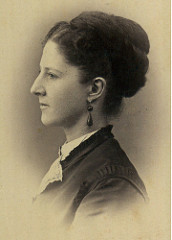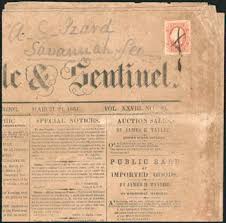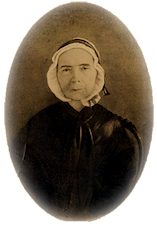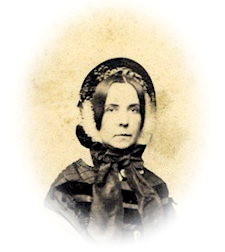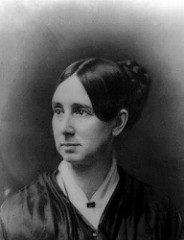July 31.–A letter from Jefferson Davis to John R. Chambless was published. It was an answer to the inquiry of the latter “whether, prior to the 24th day of April, any of the Confederate States had transferred to the Confederate government the public property captured by them from the late United States, and upon what terms; also whether any such transfers have been made since the said date, and upon what terms.”–(Doc. 137.)
–The Twentieth and Twenty-first Regiments of Indiana Volunteers, under the commands of Colonels Brown and McMillen, left Indianapolis for the seat of war. Two companies in each are armed with the Enfield and Minié muskets, and the skirmishers of both regiments have the most approved arms known to the service. The other portions of the regiments are armed with the smooth-bore muskets, which will be exchanged for the rifled guns as soon as the Government can obtain them.–Louisville Journal, August 1.
–The schooner Tropic Wind arrived at New York from Fortress Monroe in charge of a prize crew, consisting of Thomas F. Spencer, prizemaster, Surgeon Linahan, and Alexander Lowe of the Union Coast Guard. The Tropic Wind was seized on the 29th of June, by the order of Major-General Butler, for violation of the blockade and communicating with the enemy, after having been warned by the Pawnee. She had been seized once before by the Monticello and taken to Washington, but was released by order of the Secretary of State, and it was under the voyage down the Potomac that the violated the blockade. The information which led to her seizure was communicated to Major-General Butler by two of her crew, who were free negroes, who were induced to do it from having overheard a conversation between the captain and mate of the schooner in relation to the sale of themselves. The schooner has on board the former mate Mr. James L. Wilson of Virginia, who was a sergeant in an artillery corps attached to the secession army.–N. Y. Tribune, August 1.
–To-day an ordinance passed the Cincinnati (Ohio) City Council, to appropriate the sum of $23,000 to loan the Hamilton County commissioners for the purpose of relieving the wives and families of the volunteers.–Louisville Journal, August 2.
–The Fifth Regiment of Wisconsin Volunteers, under the command of Colonel Amasa Cobb, passed through Baltimore, Md., on the route to Washington. They left Madison, Wisconsin, where they had been in camp four weeks, on Wednesday last, coming by way of Janesville, Chicago, Toledo, Cleveland, and Pittsburg. Their trip was a triumphal march. All along the journey they were met at every station by crowds of people, who not only cheered them by their presence, but also furnished them bountifully with refreshments of all kinds. Not a single accident happened on the whole route. The wives and daughters of several of the officers accompanied the regiment on its journey. It numbers 1,061 men, in addition to the drum corps and band. – Baltimore American, August 1.
– Colonel L. S. Miles, upon whose conduct daring the battle at Bull Run severe animadversions had been made, published a card. He declares that he has been made the victim of personal spite, that he directed the movements of his troops on the field, and that he never gave some of the orders attributed to him. He further says that he has called for a court of inquiry to investigate the whole transaction. – (Doc. 138.)
–General Pillow in command of rebel troops at New Madrid, Mo., issued a proclamation to the citizens of Missouri, announcing his intention to expel the Federal troops from the State and reinstate Claiborne F. Jackson, at Jefferson City. Gen. Pillow’s army is made up of a portion of the Union City, the Randolph, and the Memphis troops, and is from twelve to twenty thousand strong. They are well supplied with cannon, field-pieces, and siege guns. Jeff Thompson, now in command of Watkins’ old force, has moved the encampment from Bloomfield to within eight miles of Charleston. Part of Pillow’s command, numbering some 3,000, are upon the Cape Girardeau road, between Madrid and Charleston. The rebels have taken military possession of the road through West Prairie from New Madrid to Cape Girardeau, and are preparing for an attack upon Bird’s Point or Cape Girardeau. However, every thing is in a masterly state of preparation both at Camp Defiance and at Bird’s Point, for the fight.– (Doc. 139.)
–Yesterday M. Parks, the agent of the State of North Carolina in Portsmouth, Virginia, transferred to the Confederacy a fleet of five steamers already manned and armed. – Richmond Examiner, July 30, 31.
– Brigadier-general Pope issued a special order, assigning Brigadier-General Hurlburt to the command of the United States forces along the Hannibal and St. Joseph railroad. Colonel Grant to command at Mexico, on the North Missouri road ; Colonel Ross to occupy Mounton, and Colonel Palmer to post his regiment at Renick and Sturgeon, making his head-quarters at Renick. These several districts to be divided into sub-districts not exceeding seven miles in extent, and commanding officers are instructed to report to the district head-quarters at Mexico the names of persons suitable to be appointed superintendents and assistant superintendents, whose duty it shall be to protect the railroad property in their respective divisions. Men of property and respectability, without regard to political opinion, are to be selected for positions.
All illegal assemblages to be promptly broken up, and all persons taken in arms against the United States to be sent to Mexico, to be disposed of by the commanding general. No arrests to be made for opinion’s sake, unless the parties are engaged in open acts of hostility, or stimulating others to such acts by inflammatory words or publications. The restoration of peace and safety to the region distracted by civil commotion, and the punishment of the infamous assassins and incendiaries infesting the country, is announced to be the mission of the force in North Missouri.
The troops are cautioned against excesses of any kind, especially depredations on the possessions and property of any citizen of Missouri, and infractions of military discipline and good order will be visited with the greatest severity possible under the articles of war.– Washington Republican, August 2.–(Doc. 140.)
–John H. Reagan, Postmaster-General of the “Confederate” States, issued a decision, in reference to the transmission and delivery of newspapers and periodicals through the mails in the Southern States.–(Doc. 141.)
–The Memphis Appeal of this date ingeniously culls various expressions of several northern men to prove that the present war is solely a war of abolition, and that this object long hidden begins now gradually to appear. Among the persons it quotes are, Abraham Lincoln, W. H. Seward, H. J. Raymond, Lloyd Garrison, and Wendell Phillips.–(Doc. 142.)
–In the House of Representatives at Washington, Mr. Potter from the Select Committee on the loyalty of Government employees made a special report.–(Doc. 143.)
–To-day at Washington, two general orders were issued by General Scott. The first directs that all searches for arms, traitors, or spies, and arrests of offenders, in any military department, shall only be made by authority of the Commander of the department, except in cases of urgent necessity. The second order announces the desecration of Mount Vernon by the bands of armed rebels, and expresses the hope of the Commander-in-Chief that, should the operations of the war take the national troops in that direction, every possible respect will be paid to the sacred precincts.–(Doc. 144.)
–The Missouri State Convention to-day elected for the Provisional Government, Hamilton E. Gamble, for Governor; Willard P. Hale, Lieutenant-Governor; and Mordecai Oliver, Secretary of State. The opposition were excused from voting, protesting against the power of the Convention. In the afternoon the Governor and Lieutenant-Governor were sworn in and inaugurated. Each made a strong Union and patriotic speech, amid loud applause. After the presentation of an address to the people of the State by the Convention, it adjourned till the third Monday in December, unless sooner called together by the new Government, or demanded by the public safety.–(Doc. 145.)
–Joseph Holt addressed the soldiers at Camp Joe Holt, Ind., this day. A vast throng of civilians swelled the audience, including several parties of ladies and gentlemen from Louisville. Mr. Holt was introduced by Gen. Rousseau with soldier-like directness, and spoke for half an hour or upward in a strain of the most enkindling and enchanting eloquence. The effort was one of the most effective and felicitous of his life.–(Doc. 146.)
–Thos. C. Reynolds, ex-Lieut.-Gov. of Missouri, in a long proclamation, announces to the people of Missouri that “the sun which shone in its full mid-day splendor at Manassas is about to rise upon Missouri,” and calls upon them “to rally as one man to the defence of the State.”–(Doc. 148.)


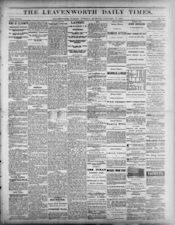
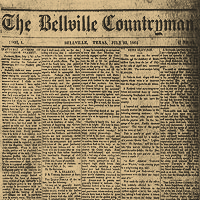
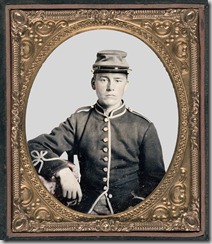
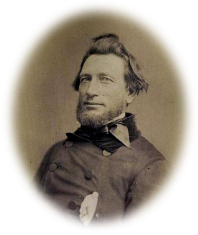

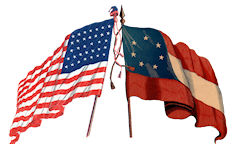
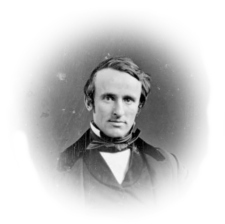
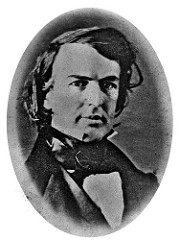

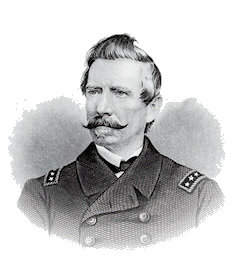
 My dear Miss Woolsey: I was extremely glad to receive your excellent letter yesterday. Had I known that you were residing in Washington, I should have requested you some time before to collect information for our society. We had become extremely anxious about these women; we could not learn who had safely arrived, where they were, what they were doing, nor how they fared in any respect; and a check of considerable amount, sent to one of them, was unacknowledged. As we had pledged ourselves to protect these women, pay their expenses, their wages, etc., you may imagine that we felt extremely uneasy about them. . . .
My dear Miss Woolsey: I was extremely glad to receive your excellent letter yesterday. Had I known that you were residing in Washington, I should have requested you some time before to collect information for our society. We had become extremely anxious about these women; we could not learn who had safely arrived, where they were, what they were doing, nor how they fared in any respect; and a check of considerable amount, sent to one of them, was unacknowledged. As we had pledged ourselves to protect these women, pay their expenses, their wages, etc., you may imagine that we felt extremely uneasy about them. . . .